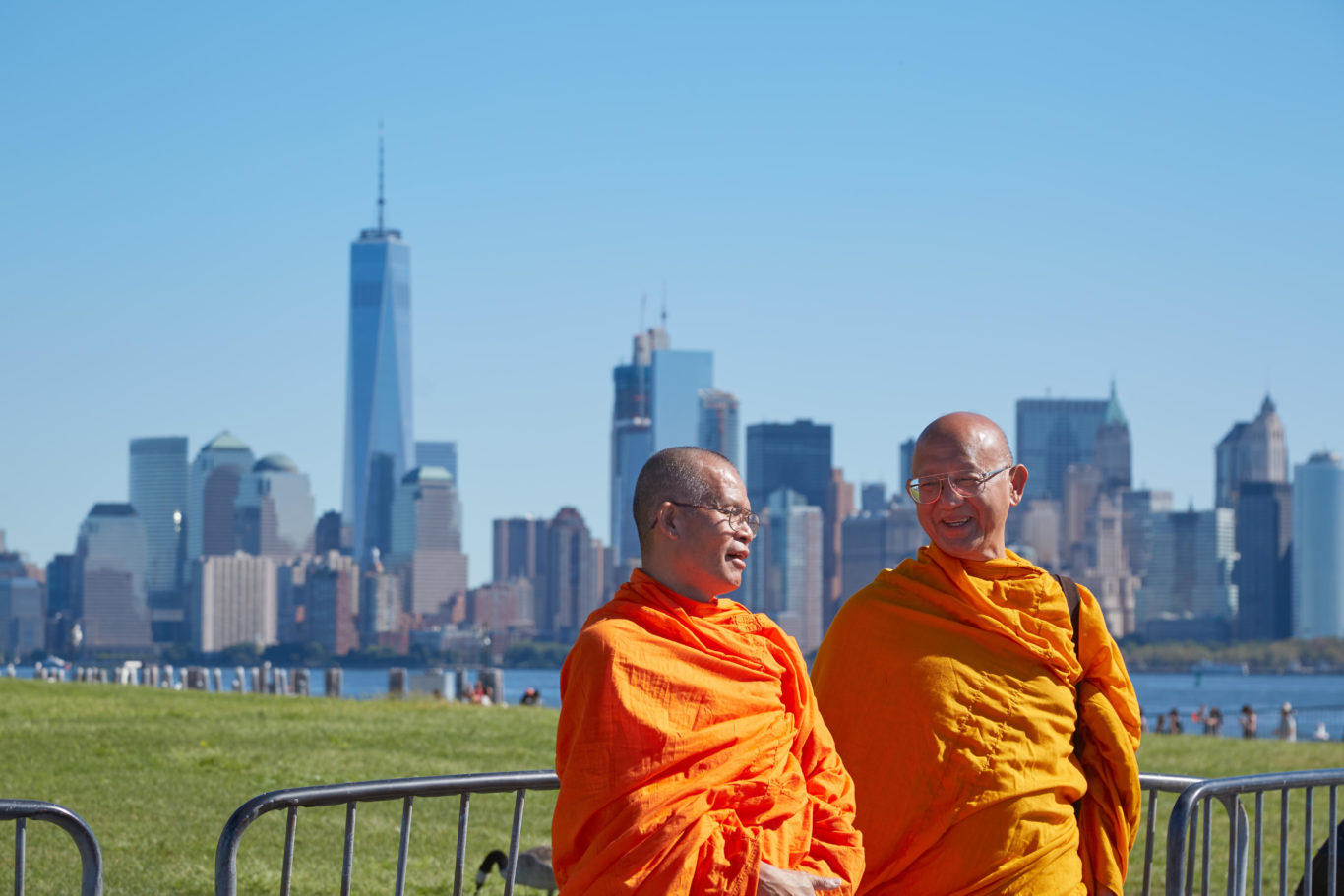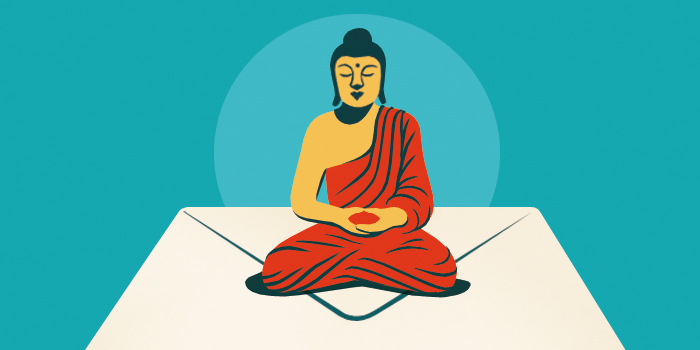Buddhism in the 21st Century

Two Theravada Buddhist monks converse in front of the New York City skyline. | A. Astes / Alamy Stock Photo
You don’t have to go to a Buddhist temple or retreat center to come into contact with Buddhist teachings and practices in today’s world. In recent years, Buddhism has become integrated into many aspects of our culture and everyday lives, including in our hospitals, hospices, schools, VA centers, workplaces, correctional facilities and sports stadiums.
In particular, Buddhism has had an important impact on contemporary Western mental healthcare, psychology, and psychotherapy. Many therapists and mental health caregivers have looked to Buddhist philosophy and mindfulness techniques as complementary therapeutic strategies for ending the suffering caused by the mind. A 2019 article in The Atlantic, “Why So Many Americans Are Turning to Buddhism,” cited record numbers of Americans looking to meditation and Buddhism as an antidote to the stress, anxiety, and strain of modern life.
It’s clear that Buddhism has come a long way from its roots. Although many Buddhist lineages remain strictly rooted in tradition, others have taken a more innovative approach, creatively adapting the Buddha’s teachings to meet the unique challenges and opportunities of today’s world. So how does Buddhism respond to the issues of today’s world? How does Buddhism understand a modern-day issue like abortion or grapple with advances in science? Find these answers and more here.
Discover Deck 6:
Is Buddhism a form of psychology or psychotherapy? Buddhist concepts about how the mind works and tools for alleviating suffering are shaping the way we approach mental health in the West.
Do Buddhists get involved with politics? The Buddha didn’t teach his lay followers to abstain from politics. Here’s how different Buddhists lineages talk about political engagement.
Why have some Buddhist monks set themselves on fire? The practice of self-immolation raises many questions about the Buddhist precepts and the Buddhist view of suicide.
I hear about scandals in Buddhist centers. That makes me nervous about joining one. Ethical conduct is a foundation of Buddhist practice, but dharma centers (like any religious center) aren’t immune to unethical behavior.
Is there a Buddhist position on assisted suicide? A hot-button issue in many Buddhist communities, Buddhists have taken a stand on both sides of the debate.
Does Buddhism support sexual and gender minorities? Despite some controversial statements from the Dalai Lama in the ’90s, the Buddhist teachings apply to everyone, regardless of gender or sexual orientation.
What do Buddhists think about organ donation? While nothing in the Buddha’s teaching strictly addresses this, there are certain funerary practices that require allowing the body to lie undisturbed after death.
Why are Buddhists in Myanmar killing Rohingya Muslims? The Buddha’s teachings have been twisted to justify violence, and even murder, in Myanmar.
Does Buddhism support gender equality? Over the past twenty-five centuries, most Buddhist institutions have discriminated against women. That’s changed in recent decades as women have made strides toward greater equality.
Why can’t women become fully ordained in most Buddhist traditions? Women’s ordination is one of the most widely debated issues in Buddhist communities today.
Does Buddhism promote environmentalism? The growing Green Buddhism, or Eco-Dharma, movement puts the well-being of the planet at the center of dharma practice.
What is the Buddhist view of abortion? Abortion has inspired much Buddhist debate over the centuries. Today, many Western Buddhists consider it to be a personal decision to be made by the mother.
Recommended Reading:
- A Call to Conscience, by Bhikkhu Bodhi
- The Buddha on Poverty and Plutocracy, by David Loy
- What Does Gender Have to Do With the Dharma?, by Wendy Biddlecomb Agsar
- Not Just Mindfulness, by Ira Helderman
- Will Sanghas Learn from the Scandals in the Buddhist World?, by Wendy Biddlecomb Agsar

Tricycle is more than a magazine
Gain access to the best in sprititual film, our growing collection of e-books, and monthly talks, plus our 25-year archive
Subscribe now